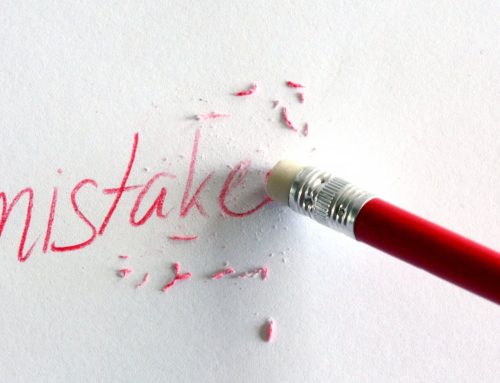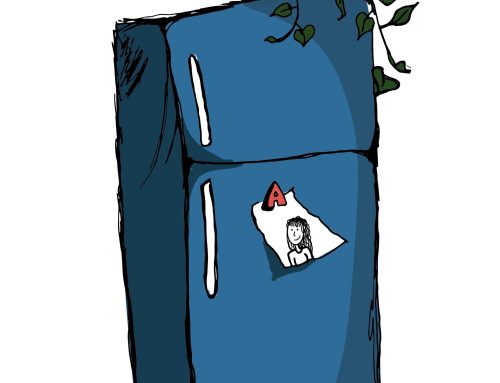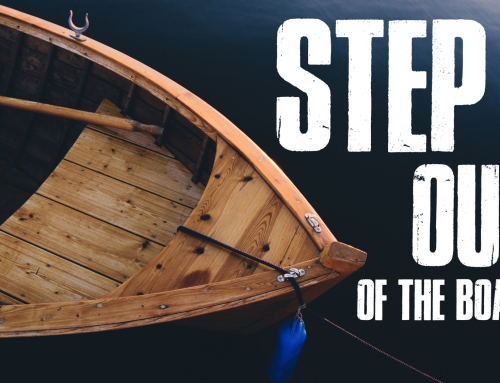Princeton sociologist Robert Wuthnow reports that 89 percent of people say “our society is much too materialistic.” In the same study he also found that “84 percent of people wished they had more money.” This study perfectly portrays the love and hate relationship we have with money. We all know it’s wrong to get sucked into the search for more money and material goods but we all feel like we’d be happier if we had just a little more.
For many people you are making more money now than you have ever made in your life and you are just as worried as when you had less. Why is that? How can we get to the place where we stop worrying about our money? There is a chapter in the Bible that gives us a few answers that can walk us down the right path. Ecclesiastes 5 was likely written by a man named Solomon who many consider among the wisest men in the world. Based on his reported annual income (20 million in gold yearly) he’s someone who knows a bit about money. It’s hard to disagree with this statement.
Whoever loves money never has enough; whoever loves wealth is never satisfied with their income. This too is meaningless. Ecclesiastes 5:10
Here’s the first way money can sneak into that top spot in our lives.
We love money too much
These words give us a quick test to see if we love money. Whoever loves money never has enough. If you find yourself always wishing you had just a little bit more than it’s a very real possibility that you love money more than you think you do.
I know what some of you are thinking. “I don’t love money. I hate it!” I know you don’t believe it, but you do love money. It’s just not a Romeo and Juliet kind of love. A love affair with money is more like a Bille Bob Thornton and Angelina Jolie romance. It’s controlling, it’s co-dependent, there’s all kinds of infighting. There is tension and anxiety. When you have gotten to the place where money is never enough it has mastered you. It’s calling the shots.
We love our stuff too much
These words were written thousands of years ago but they still ring very true.
As goods increase, so do those who consume them. And what benefit are they to the owners except to feast their eyes on them? The sleep of a laborer is sweet, whether they eat little or much, but as for the rich, their abundance permits them no sleep. Ecclesiastes 5:11,12
As our stuff increases so do worries We are one of the richest nations in the world and rich always means more stuff. You may not have as much stuff as your neighbor or your co-worker, but that doesn’t mean you don’t have stuff. Maybe a little less stuff, but you still have stuff. Here is a fact. Stuff always multiplies worries. Always. Our conveniences are multiplied and our comfort is multiplied but make no mistake, our worries are multiplied.
Think for a second about what we have that people 100 years ago didn’t have. Washing machines, dishwashers, garbage disposals, microwaves, refrigerators, flat screens, automobiles, cell phones, computers, heaters, air conditioners, pool pumps, granite countertops. What do all these things have in common? Yes, they all cost money. You know what else? They all break or go out of style. They were all expensive to buy and they will be expensive to buy again.
For the last several months we have needed a new washing machine. How did I know? During every load my washing machine would be two feet away from where it started when the load began. If anyone was home you could hear pounding like a punk rock drummer during the spin cycle. It was enough out of balance that the drum slammed against the side of the machine. My washer was getting it’s steps in. I finally got fed up and ordered one from Best Buy. The next week I found it for $100 less at Costco. Rookie mistake. Solomon puts it like this for people like us.
Their abundance permits them no sleep.
We have more things now in our homes for us to live a convenient lifestyle but the abundance of these things just causes more tension. When the washing machine breaks and the cars transmission is going and the water heater explodes, we know it’s going to cost us and we can’t sleep.
So what is the answer? Solomon ends this discussion with some words that have become a goal for my life.
This is what I have observed to be good: that it is appropriate for a person to eat, to drink and to find satisfaction in their toilsome labor under the sun during the few days of life God has given them—for this is their lot. Moreover, when God gives someone wealth and possessions, and the ability to enjoy them, to accept their lot and be happy in their toil—this is a gift of God. They seldom reflect on the days of their life, because God keeps them occupied with gladness of heart. Ecclesiastes 5:18-20
We all to a greater or lesser extent have wealth and possessions, but here’s what we lack. The ability to enjoy them. How do we learn to enjoy what we have? In our culture that is hard.
An international team of researchers report in an issue of Psychological Science said that, “although wealth may grant us opportunities to purchase many things, it simultaneously impairs our ability to enjoy those things.”
Charles Swindoll put it like this. “Money can buys us tons of comfort, but not an ounce of contentment.”
How can we get to that place of contentment? How can we get to the place where we have things and we actually enjoy them? Here is the goal. They seldom reflect on the days of their life, because God keeps them occupied with gladness of heart. How do we get there?
Feels like I’ve spent a lifetime trying to learn contentment. In my study there is one phrase that has helped navigate my need for stuff. When someone close to me gets a new house or a better car or some nice shoes, rather than wishing I had what they have I’ve learned to say this.
“That’s great but I don’t need it.”
That one phrase has given me the ability to look at a beautiful car and appreciate it but not get sucked into the need to own it. That one phrase has given me the strength to walk into someone’s house with a new kitchen but still be content with my old kitchen. That one phrase has allowed me to celebrate with a friend who buys a vacation home but not feel less than because I don’t have a vacation home. (It does help me to celebrate your vacation home if you are willing to let me borrow it for a week. Just saying)
I don’t have a single friend who would openly say they love money. I don’t have a single friend who would openly say that they overvalue their stuff. No one says it. We just slide into it. Take a moment to do a little self evaluation.
Have you found that you never have quite enough money?
Does your abundance of stuff keep you up at night?
Can you celebrate when someone else gets stuff without needing to get more stuff?
Perhaps it’s time to lean into gratitude for what we have rather than what we do not. Only then we can stop worrying about our money.









Good stuff Jack! Hope you are doing great my friend.
I have only great memories of you my man. Of course I’m 59 so my memory is fading. Hope life is going well. Thanks for reconnecting.
Amen.
Hey Mike. Thanks for reaching out. So great to hear from you. Praying blessings on you right now.